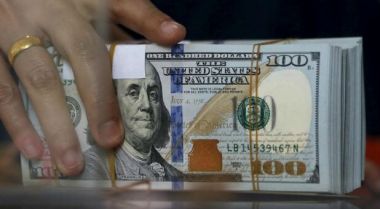Atheist files lawsuit to remove 'In God We Trust' from U.S. currency, claiming that it violates First Amendment

An atheist from California wants the phrase "In God We Trust" removed from U.S. currency, claiming it violates the First Amendment and the Religious Freedom Restoration Act (RFRA).
Michael Newdow filed the lawsuit on Jan. 11 before a U.S. District Court in Ohio against the U.S. Congress and Treasury Department.
"The 'In G-d We Trust' phrase has continued to be a tool used to perpetuate favouritism for (Christian) Monotheism. It has also continued to perpetuate anti-atheistic bias," according to the lawsuit.
Newdow's lawsuit is a revival of a case he lost in 2010 when the 9th U.S. Circuit Court of Appeals upheld the constitutionality of "In God We Trust" in U.S. coins and currency.
The appeals court also upheld the words "under God" in the Pledge of Allegiance.
In the lawsuit, Newdow claims that by placing the phrase on coins and currency, the defendants "have gone far beyond that expected reach of RFRA, having acted in a purely (Christian) Monotheistic religious manner."
It said the defendants "have substantially burdened Plaintiffs in the exercise of their Atheistic (and similar) beliefs by requiring them—as the price to pay for using the nation's coins and currency bills—to personally bear a religious message that is the antithesis of what they consider to be religious truth."
"Similar, for Plaintiff Clayman, Defendants have required him to sin," the lawsuit further claims.
On his blog post, Newdow wrote that "there is obviously no compelling government interest in having 'In God We Trust' on our money. We did fine for the 75 years before the phrase was ever used at all, and continued to do fine for the subsequent 102 years before such inscriptions were made mandatory on every coin and currency bill. Similarly, the vast majority of nations manage to function without religious verbiage on their money."
Newdow said he believes that the lawsuit he filed will prosper under the RFRA claims.
"Challenges under RFRA, however, are not as susceptible to misapplication. This is because every Supreme Court justice involved in the three RFRA cases heard to date has agreed that, under RFRA, religious activity may not be substantially burdened without a compelling governmental interest and laws narrowly tailored to serve that interest," he wrote.











